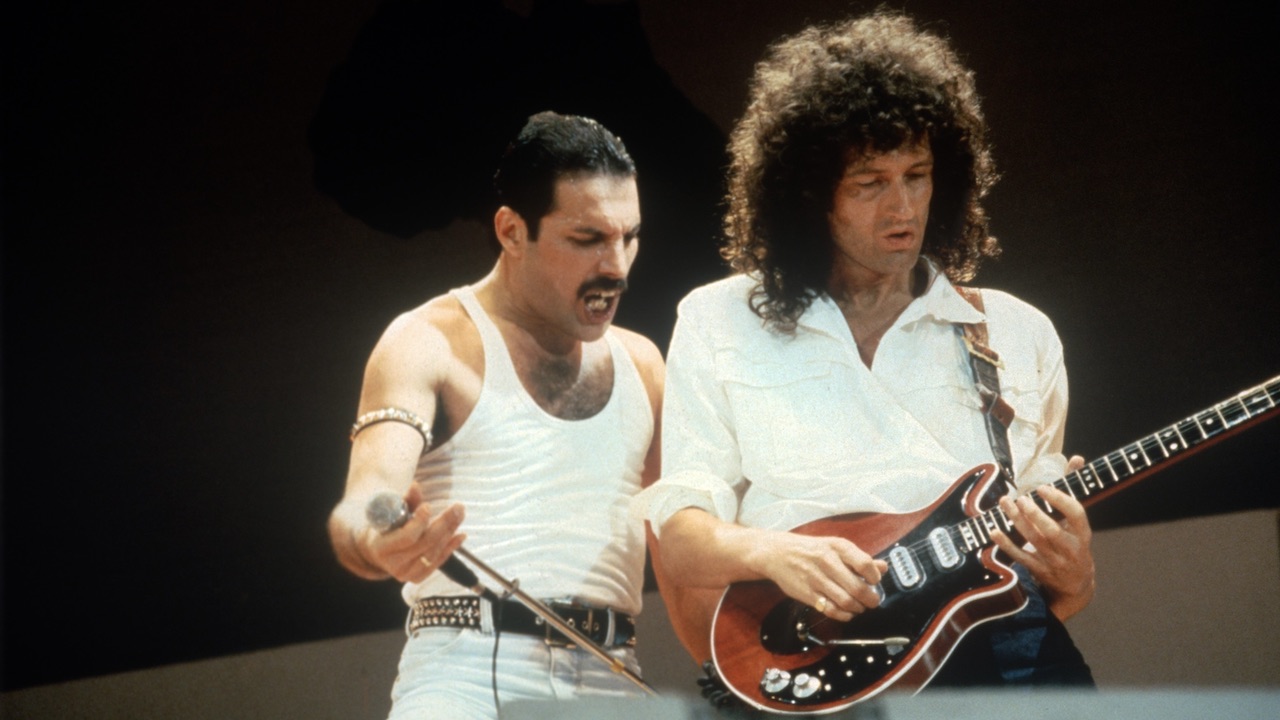More than any artist on the star-studded bill, Queen have come synonymous with Live Aid, the band's short but spectacular six-song set providing the concert's most vivid and long-lasting images and memories. But, in a new interview with MOJO magazine, promoter Harvey Goldsmith reveals that Band Aid/Live Aid mastermind Bob Geldof didn't originally want Freddie Mercury's band on the bill at all, and that Mercury himself initially wasn't all that interested in performing on the day either.
The Live Aid concert was conceived by Geldof and Midge Ure, co-writer of 1984's best-selling Band Aid single Do They Know It's Christmas?, as a vehicle to raise funds for, and awareness of, famine relief in Africa. Enlisting the help of London promoter Harvey Goldsmith, the pair booked Wembley Stadium to host the UK leg of the show on July 13, 1985: they were then faced with the not inconsiderable task of putting together a bill of artists who could not only sell out the 72,000-capacity stadium, but hold the attention of two billion TV viewers across the planet. And Geldof apparently didn't think that Queen were up to the task.
"Geldof and I were putting Live Aid together and going through potential artists," Harvey Goldsmith tells MOJO. "Being the producer, I understood how slots work and who went where. I was also dealing with the technical side: we were doing two shows [London and Philadelphia] and had to stay strictly to time because of the satellite.
“I thought about it, and said for the late afternoon slot the perfect act would be Queen. Bob said, ‘No, they’ve peaked. I don’t think they should play.’ I said to Bob, I really think they’ll be perfect to go on in that 5.30, 6 o’clock type slot – knowing Freddie as I did, I knew they’d really make a show of it. Bob and I went backwards and forwards. I had to do a lot of persuading. He said, ‘No, we’ve got other acts we could put on.’ I dug my heels in and said there’s no better act that could do this than Queen."
In truth, Queen themselves weren't wildly enthusiastic about getting on board either.
“We definitely hesitated to say yes,” guitarist Brian May admitted to Classic Rock magazine last year. “We had to consider whether we were in good enough shape. The chances of making fools of ourselves were so big.”
"They’d just finished a long tour and were all a bit wrecked and wanted a break," Goldsmith tells MOJO. "And it was very close to the day. Freddie stood back from it all a bit – I think he wanted to see what the reaction to Live Aid’s announcement was. When he realised the reaction of the press and media and the demand for tickets, he talked to the band and to their manager Jim Beach, and they decided to do it.
"Of course," he adds, "they wanted to close the show. And I said, No, I want you to go on at this slot. I think what really swung Freddie over was the thought that he could play to a billion people in one go, live. Nobody had ever done that before. I think he just felt, ‘OK, I’ll show you…’ Freddie smelt blood. He went for the throat."
The rest, of course, is history. Taking the stage at 18:41 on the day, Queen opened their set with Mercury at the piano for a snippet of Bohemian Rhapsody, and immediately had the Wembley crowd in the palms of their hands. By the time they closed their set with We Are The Champions, it was obvious to everyone watching that this was a performance for the ages, and a genuinely iconic moment in rock and roll history.

![Live Aid (Queen) Full Concert [1985, London, Wembley Stadium] - YouTube](https://img.youtube.com/vi/PLIAp5nr0q0/maxresdefault.jpg)
